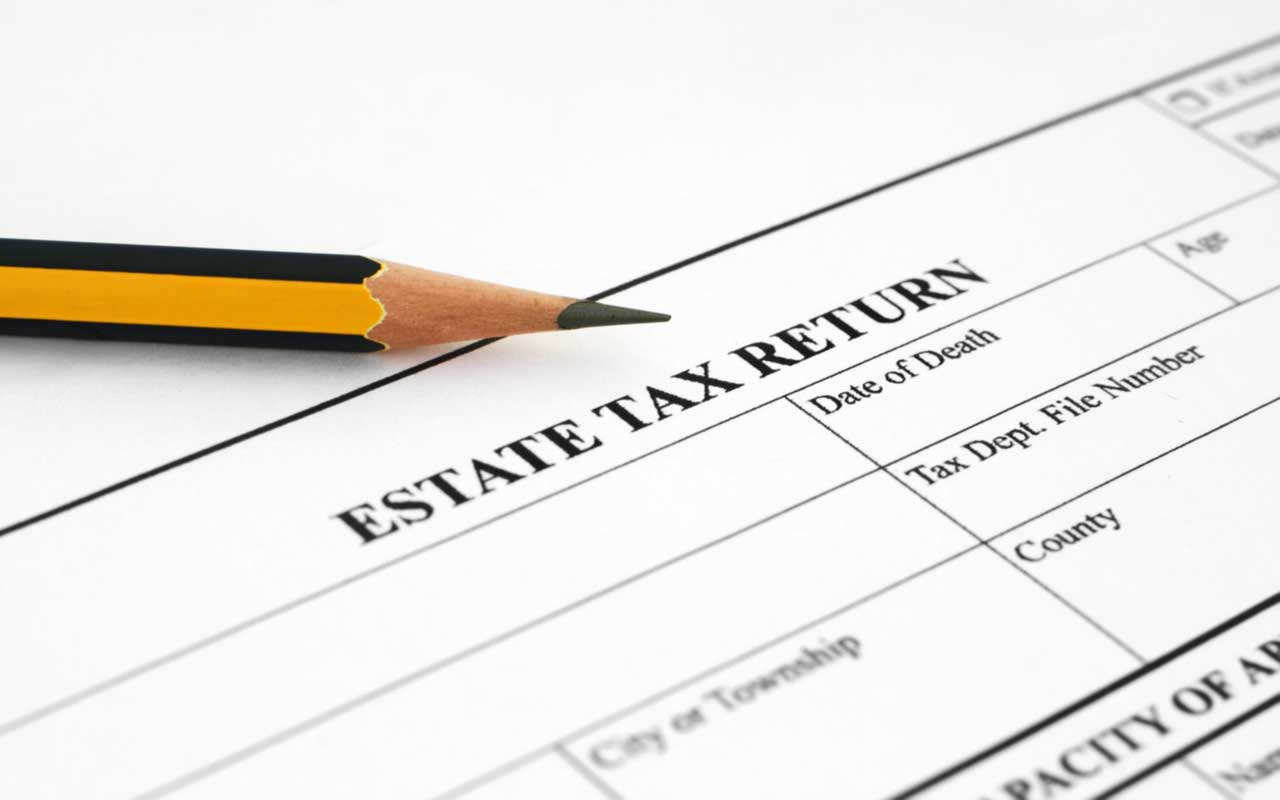
Getting the right tax advice and tips is vital in the complex tax world we live in. The Kiplinger Tax Letter helps you stay right on the money with the latest news and forecasts, with insight from our highly experienced team (Get a free issue of The Kiplinger Tax Letter or subscribe). You can only get the full array of advice by subscribing to the Tax Letter, but we will regularly feature snippets from it online, and here is one of those samples…
What's going to happen with the federal estate tax is anyone's guess. The federal lifetime estate and gift tax exemption for people who die in 2024 is $13,610,000, and the highest estate tax rate is 40%. However, after 2025, the $13,610,000 figure will be much lower. That's because the 2017 Tax Cuts and Jobs Act (TCJA) raised the exemption amount, but only temporarily. Unless lawmakers act, the figure will drop, reverting to the 2017 amount, adjusted for inflation. That's about $7 million or so. The 40% top tax rate isn't set to expire, as it wasn't changed in the 2017 TCJA.
The next president and Congress will have to confront this. We don't know what lawmakers will do with the federal estate tax in 2025. There are a number of options that can be taken. Of course, any of these options depends in large part on who wins the presidency in November and which party controls the House and the Senate. Also, the estate tax won't be considered in a vacuum. There are lots of other provisions affecting individuals in the 2017 TCJA that expire after 2025, including the income tax rates, tax brackets and the higher standard deductions.
Let's look at six options to address estate taxes.
1. Keep things as they are
The first option is that Congress and the next president can keep things as they are, meaning extending the current estate tax exemption and maintaining the top 40% tax rate. Donald Trump often says he wants to make permanent the tax cuts in the 2017 TCJA, and we believe that promise would also include the higher lifetime estate and gift tax exemption. Whether Trump wants other additional easings to the estate tax remains to be seen. Kamala Harris promises not to increase federal taxes for people making less than $400,000.
2. Change the estate tax rate and/or the exemption amount
A second option is to lower the estate tax rate and/or to increase the exemption amount. The authors of Project 2025, the blueprint spearheaded by the Heritage Foundation and designed for the next Republican administration, set forth a federal estate tax rate of no higher than 20%. Project 2025 would also make permanent the current $13,610,000 estate tax exemption amount, adjusted each year for inflation. Some Republican lawmakers want a higher exemption amount.
3. Get rid of the federal estate tax
A third option is to get rid of the federal estate tax altogether. A bill that draws strong Republican support in the House and the Senate, the Death Tax Repeal Act, calls for the repeal of the estate tax and the generation skipping transfer tax. This is not a new idea. Republican lawmakers have been clamoring for an end to the estate tax for years.
4. Find a middle-ground
A fourth option is to come up with a middle-ground estate tax exemption figure, somewhere between the current $13,610,000 and the $7 million amounts. Or possibly to let the higher exemption amount stand with a slightly increased tax rate.
5. Do nothing...
A fifth option is to do nothing. This would cause the higher estate tax exemption in the TCJA to automatically lapse, reverting to about $7 million for 2026 deaths. The top 40% estate tax rate would remain in place.
6. Lower the estate tax exemption amount
A sixth option is to lower the estate tax exemption amount below 2017's figure and/or to increase the estate tax rate. An example of this can be found in the American Housing and Economic Mobility Act of 2024 (PDF), a bill introduced in the Senate by Elizabeth Warren (D-MA) and in the House by Emanuel Cleaver (D-MO). The bill sets forth a slew of affordable housing proposals aimed at bringing down housing costs for renters and buyers. It also calls for changes to estate and gift taxes to offset the cost of the provisions.
Here are some of the key proposed federal estate and gift tax changes in the American Housing and Economic Mobility Act of 2024:
- Lower the estate tax exemption to $3.5 million, an amount last seen in 2009
- Replace the current 40% estate tax rate with a series of progressive rates. The bill would increase the rate to 55% for estates valued between $3.5 million and $13 million, 60% for estates valued between $13 million and $93 million, and 65% for wealthier estates. Also, estates valued at $1 billion or more would see an additional 10% tax surcharge.
- Reduce the annual gift tax exclusion to $10,000 per donee, down from $18,000 now.
We have seen stories online that Kamala Harris has endorsed Senator Warren's American Housing and Economic Mobility Act of 2024. But we have found no concrete evidence of this. So far, Harris has been pretty quiet on the campaign trail when it comes to estate taxes.
This first appeared in The Kiplinger Tax Letter. It helps you navigate the complex world of tax by keeping you up-to-date on new and pending changes in tax laws, providing tips to lower your business and personal taxes, and forecasting what the White House and Congress might do with taxes. Get a free issue of The Kiplinger Tax Letter or subscribe.







